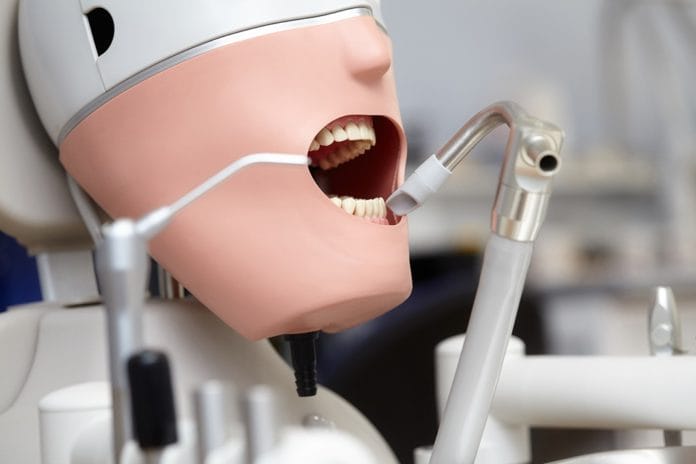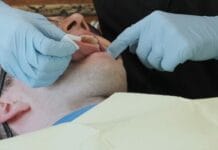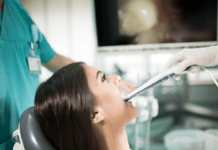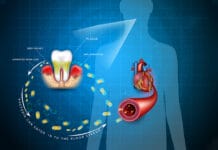During dental hygiene school, I decided I wanted to eventually be a dental hygiene educator. I’ve previously written about the steps I took to get my bachelor’s degree. I wasn’t expecting that, as soon as I completed my bachelor’s degree, I had a position at my dental hygiene school as adjunct faculty.
For those who know me, I am very motivated and determined to achieve my goals. When I received this position, I was extremely excited but also nervous. This was my first time teaching anything to students. Some of the students I taught were older than me.
That’s the thing with dental hygiene. We are different ages with different backgrounds, but we find common ground in the profession we chose.
The Basics
It has been less than three weeks since I completed my first semester of teaching clinical hygiene to first-year students. Reflecting back, it was such an amazing semester. It was amazing because I was able to see how far the students have come, and I was able to contribute to their success in just one semester (a few months!).
This first semester was teaching Dental Hygiene 101, the basics of basics: how to hold an instrument in the modified pen grasp and how to floss another human being. Having the opportunity to teach all day (two separate first-year clinic sessions), I was fortunate to get to know the entire freshmen class. I was able to also see them start to have confidence in the material they were learning. The teaching environment was calm and enjoyable, as well.
I also enjoyed thinking back to when I was a student, how I felt, and how far I’ve come already. It was a great review of the basics to check myself in anything I can improve on or bring with me to my private practice. I also observed the minor adjustments and updates to dental hygiene processes and procedures.
One of the biggest fears I had in my first semester was teaching the students a different way of doing a specific dental hygiene skill. As you know, when you are licensed and practicing, you learn some dental hygiene hacks and tricks of the trade along the way to help your day-to-day routine. In school, there’s a focus on a strictly “by the book or school” approach, the standards of all standards.
I’m not saying when you enter private practice, everything you’ve learned or standards go out the window, but you make acceptable adjustments. For example, you may alter a chair clock position that might be slightly more comfortable or use an instrument in a different location when scaling. You are not giving substandard care at all.
I believe you need to know the “textbook” way first, so you know the basics of the basics. You must learn how to walk before you can run. The way I got rid of this fear was speaking with other faculty I was working with and asking questions. We continue to learn each day whether you are a dental hygiene student or professor in your 10th year.
Full Circle Experience
The change in perspective allowed me to have a “full circle” experience. I observed the challenges of being a faculty member while experiencing what my students were facing as well. The students were facing things we all had challenges with when we were in school, such as struggling with the introduction of new instrumentation or getting all the correct teeth into that periapical radiograph.
I also think being a young faculty member allowed me to be the middleman between the students and other faculty. One of my goals of becoming a dental hygiene educator in a dental hygiene school was giving the students a pleasant experience they could look back on.
Just like with anything, there are challenges as well. You can’t continue to improve and learn without challenges. The end goal is to help lead these students into a field where they can be the best dental professionals they can be. There will be bumps, such as failing a competency or having a difficult patient case, but with failures and mistakes, it allows you to get the most out of the education.
Even though it was a difficult two years when I was a student, I had an overall great experience with friends I will always have. After graduating, you look back at what you accomplished. We get to see and, at times, laugh at the silly mistakes you made or being proud of yourself for completing a difficult periodontally involved patient. That’s what I want for all my students. I want them to see their growth and have a great experience. I hope they can eventually appreciate all the work everyone puts in for the next generation of dental providers.
Additionally, being on the other side of dental hygiene school, I made new friends and got to work with some of my former professors. During the first year, these students put themselves under a lot of stress. They try to absorb as much as possible. As educators, we are able to help them along with our experience and knowledge. We give them tools and support so they are able to overcome a challenge and know what they can do differently.
We can be an educator anywhere. You could be an educator at a dental hygiene program, with your patients in the operatory, as a company sales representative educating consumers or professionals, or even as a mentor to a new hygienist who is just starting out.
In a few weeks, school starts right back up again. A new semester means a brand new experience. One thing I would tell anyone who is thinking about teaching is to definitely go for it. At least try it out for a semester or speak with other educators.
Even when in school, I voiced my interest in becoming an educator one day. I figured out what steps I needed through the advice and experiences of mentors and others. During my first semester, I definitely found out that learning goes both ways. It may not be for everyone, and that’s OK! We are all fortunate to be in a profession that allows us to venture off to many different outlets and settings to make a difference in dental care.












